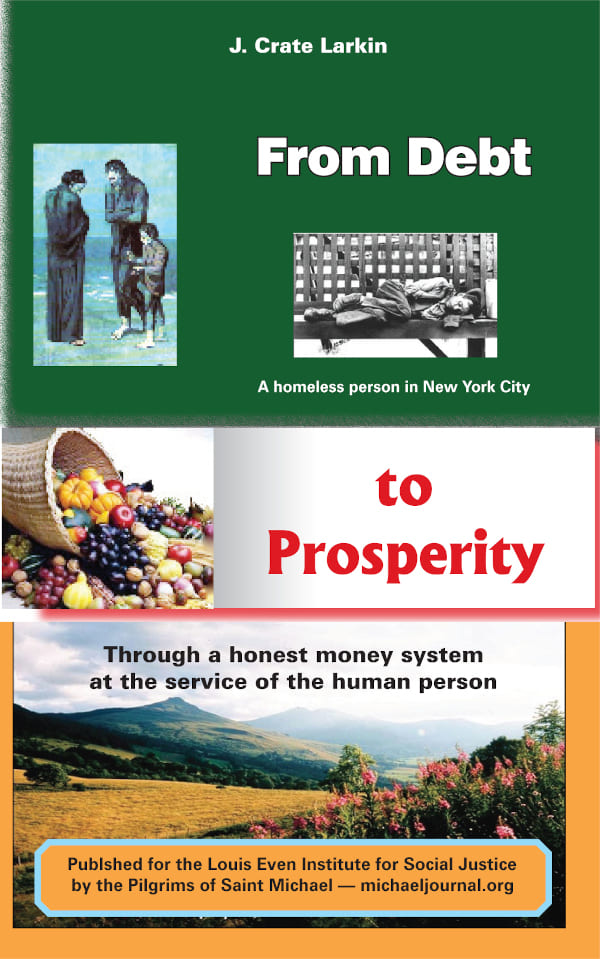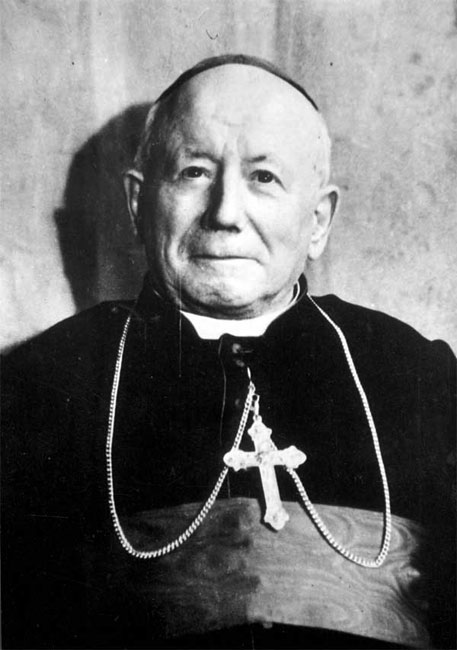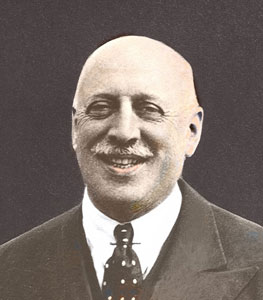
“An Economic System to Fight and Replace”
 His Eminence Cardinal Saliege, Archbishop of Toulouse (France), in his message for Lent 1954, on the Duty of Christians in our society:
His Eminence Cardinal Saliege, Archbishop of Toulouse (France), in his message for Lent 1954, on the Duty of Christians in our society:
“One forgets, one does not see, one does not want to see that there are people badly housed, people badly fed, insufficient wages, that there are entire countries suffering from hunger. It is not Christian to think, all the more reason to say: it is their fault...
“For a long time, a Christian was recognized by the sign that he loved and assisted the poor, in whom he saw Jesus Christ, the poor man par excellence, who had nowhere to lay his head.
“An economic system that mass-produces poor, homeless, starving people; every Christian must make it his duty to fight and replace it.
“Once again, we must not delude ourselves: the Christian who wants to carry out his duty is contradicted by other Christians who do not understand, do not accept the doctrine of the Gospel and of the Popes, and by many conservative atheists who are for the established order.”
 The Work of the Pilgrims of St. Michael has its origin in this pamphlet. Here is what its founder, Louis Even, said during his conference given at the 1959 Congress in Allardville, New Brunswick, Canada:
The Work of the Pilgrims of St. Michael has its origin in this pamphlet. Here is what its founder, Louis Even, said during his conference given at the 1959 Congress in Allardville, New Brunswick, Canada:
“God takes care of us, He takes care of the poor and He sees those who are in need. When the time comes from Him to intervene, even if He must send an angel, He will do it. St. Thomas Aquinas said himself, for the spiritual realm for example, that if the soul is well disposed; God will send an angel, if He cannot send a missionary to help him to be saved.
“Well! In our country and all the countries of the world, we know that today there are people who are suffering. We can say that God’s time has arrived, that He has put Social Credit on our path. He put Social Credit on all of our paths. For my own part, every day of my life, and even beyond for the whole eternity, I will praise God and thank Him for putting Social Credit on my path. I will always remember that day in 1934, while on a train that was bringing me to my job, from Montreal to St. Anne de Bellevue; I had the privilege to read a 96-page brochure that explained Social Credit. (The little pamphlet called From Debt to Prosperity.) I was not looking for Social Credit. I was searching for something that could be a solution to the absurd crisis with which we were struggling during those times. I had read many things. Besides my work during the day, I was a professor for the employees of our printing shop — there were about a hundred of them. Every week we would have a study session.
“We had chosen for our discussion subject ‘the question of money and credit.’ We were searching for a handbook on the subject. I had read many manuscripts, small pamphlets, and books that were sent to us. In all of them, I found ways to improve the situation, but there was also something in each of them that was not right. With these solutions, one could help people, but on countless conditions: we had to make plans, to make a dictatorship, or implement socialism in order to aid the world.
“When I saw Social Credit I said: it is marvellous! I decided right away that it was the truth that I had discovered here. The others had a shadow in their picture. There were no shadows in Social Credit. It was the truth. I was not long into this book; before finishing it, it was possible to see what it was about. I said: “It is so beautiful, everyone must know about it.” It was put on my path; it must be put on the path of each person. It is Divine Providence that put it in front of me and as I did not have many means at that time, I did not know how to go forward from there. But I had the desire, and I practically made a vow that I would spread this idea as much as possible. I did my work, but I could not do very much except on the weekends, until the day when, through the initiative and support of Mrs. Gilberte Cote-Mercier, I was able to quit my job and devote myself full-time for the great work of Social Credit.
“What would Social Credit do? Social Credit would take care of a problem that has no reason for being. The very existence of this problem insults logic and is a condemnation of those who hold the reins of command in today’s civilized countries.
“Whose problem is it? It is everybody’s problem. From top to bottom, in your families, city councils, school boards; everywhere there is same problem, the problem of money.
“So the existence of this problem is a proof that humanity is absolutely in the dark just as the idolaters who adored false gods. They are worshipping money, they are not able to fix the problem, or they think that they are not able, or they do not want to resolve a problem that is easy to fix…”
Louis Even
 C.-H. Douglas C.-H. Douglas1879-1952 Scottish engineer who conceived the Social Credit proposals |
This booklet outlines briefly the economic analysis and constructive proposals known as Social Credit. These are basically the work of Major C. H. Douglas, a Scottish engineer of broad practical experience in science, business, and economics.
The proposals of Social Credit are designed to revive business, to preserve private property and the profit system, to reduce debt, to lower taxes, and to provide economic security for every American citizen.
These aims would be accomplished by the issuance of purchasing power direct to consumers in the form of credit. Three definite practical steps arc required:
Social Credit very properly comes under the heading of “THE NEW ECONOMICS,” which approaches our present-day business problems from the practical viewpoint of a civilization equipped with every modern device of science for satisfying the needs and desires of its members. In answer to the problems of Poverty and Depression Social Credit proposes a definite solution, the most sensible and least difficult way out of our financial confusion. Social Credit points the way from depression to permanent economic security, achieved through the true financial valuation of America’s Real Wealth and the provision of adequate buying power to American citizens.
Social Credit is founded on two propositions:
First, that money must accurately reflect the true facts of our Real Wealth. Second, that in any civilized nation where the money-system reflects the facts and performs its function of distributing goods and services for consumption, in that nation prosperity and permanent economic security will be achieved, and poverty, paralyzing debt, and depression banished.
Yet Social Credit is neither Socialism, Fascism, nor Communism, for it involves no confiscation and would sacrifice neither the liberty nor property rights of anyone. More than anything else it means every day common sense applied to money and business.
Should the principles of Social Credit be put into operation today by the President and Congress of the United States, within six months the economic security of every American citizen would be won, and the nation could enjoy the prosperity of plenty warranted by its rich resources.